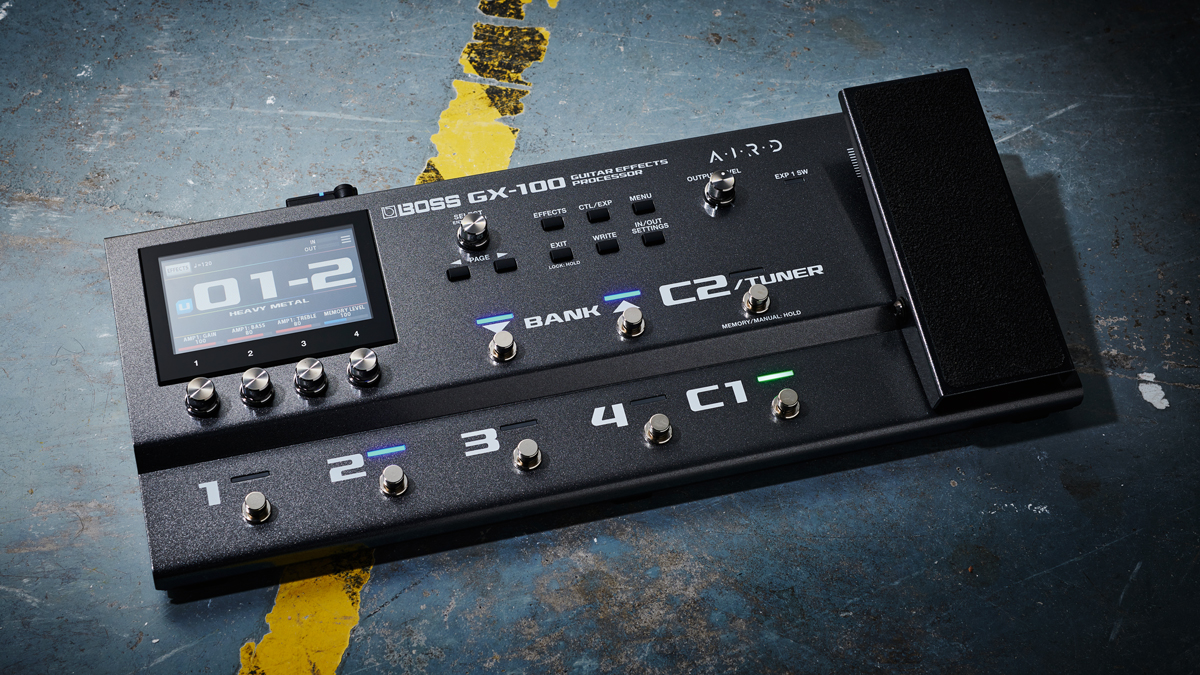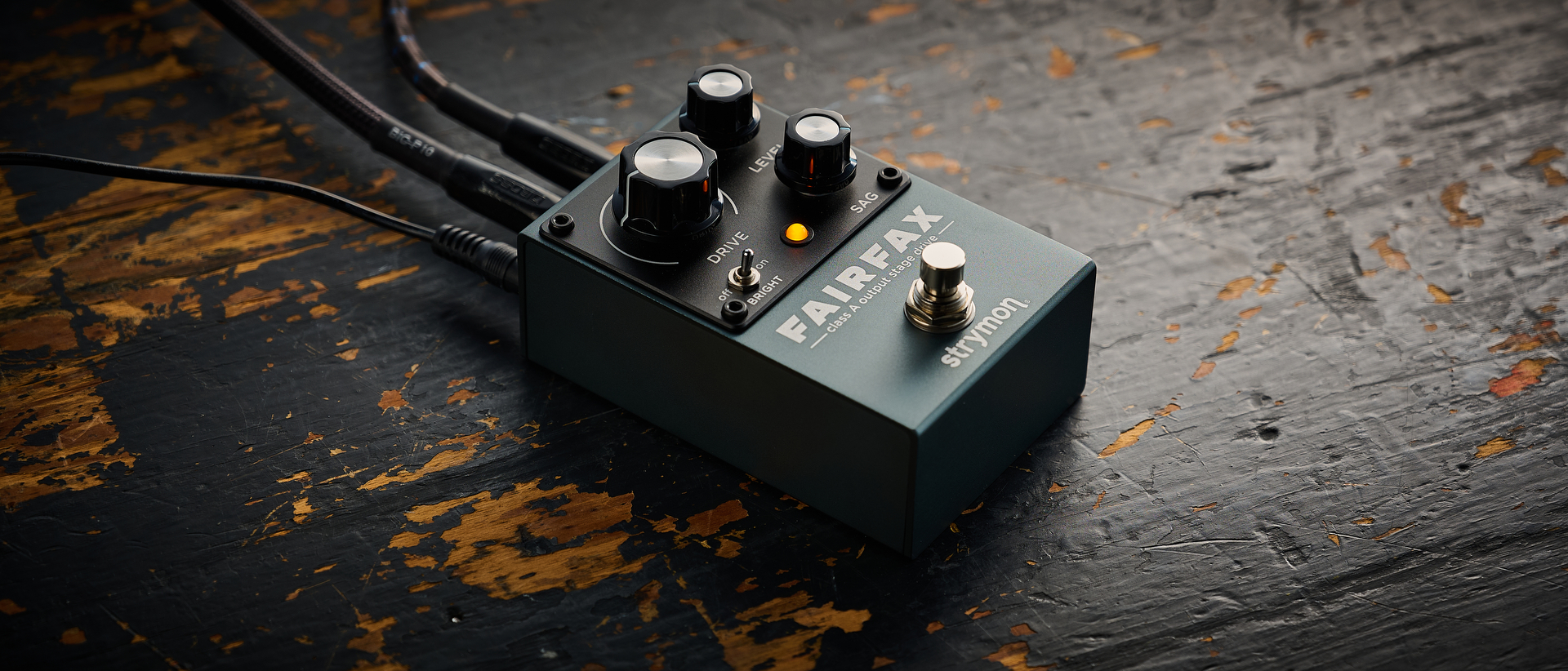Guitar World Verdict
A smart new touchscreen interface and some awe-inspiring amp and effects models make the GX-100 Boss's best multi-effects floorboard to date.
Pros
- +
Touchscreen interface is a big step up.
- +
Excellent, responsive amp models.
- +
Superlative effects.
Cons
- -
Interface still takes a bit of getting used to.
- -
Not as many amp models as rival processors.
You can trust Guitar World
Boss is the king of stompboxes, but when it comes to multi-effects, there has been room for improvement. While the sounds are exemplary, the effects giant’s GT interface can feel a little complex and difficult to work with compared with its contemporary competitors. Can the company’s first touchscreen-enabled floor processor change that?
The short answer is yes: setting up patches on the GX-100 feels noticeably more streamlined than previous Boss offerings. When editing parameters, you can either tap and use the quick-adjust pots along the bottom, or move to knob mode, where all parameters are shown on screen – besides dialling in sounds, it’s seriously handy for setting up the pedal’s myriad footswitch assign and MIDI control functions, as well.
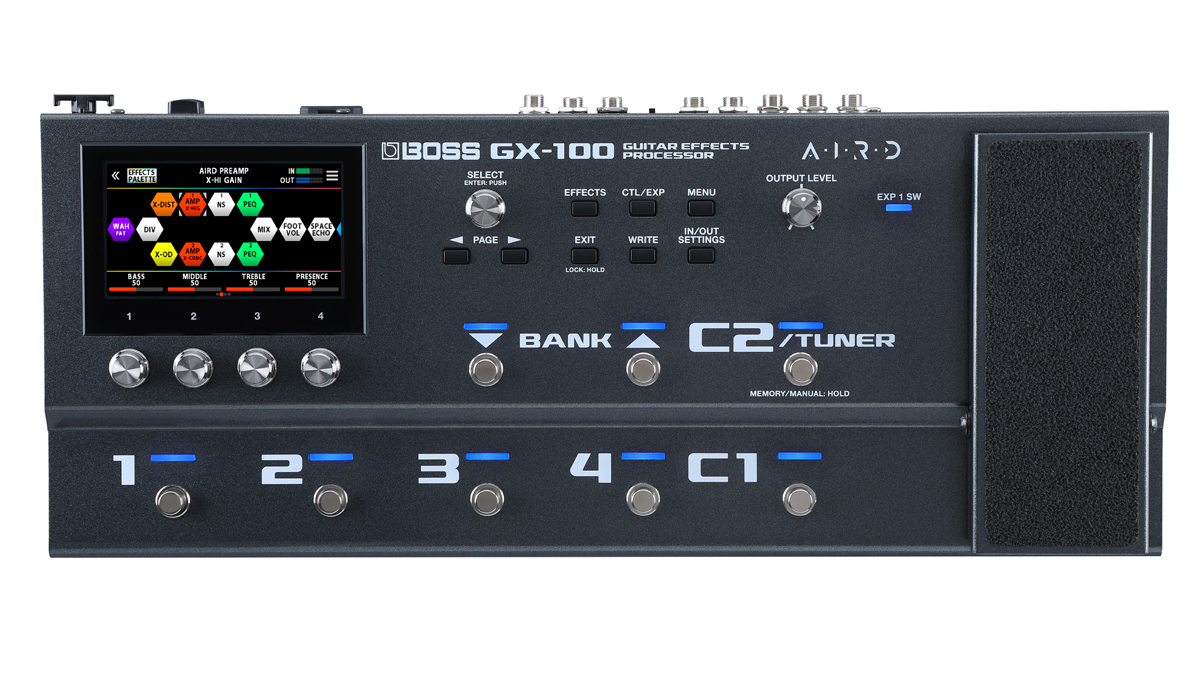
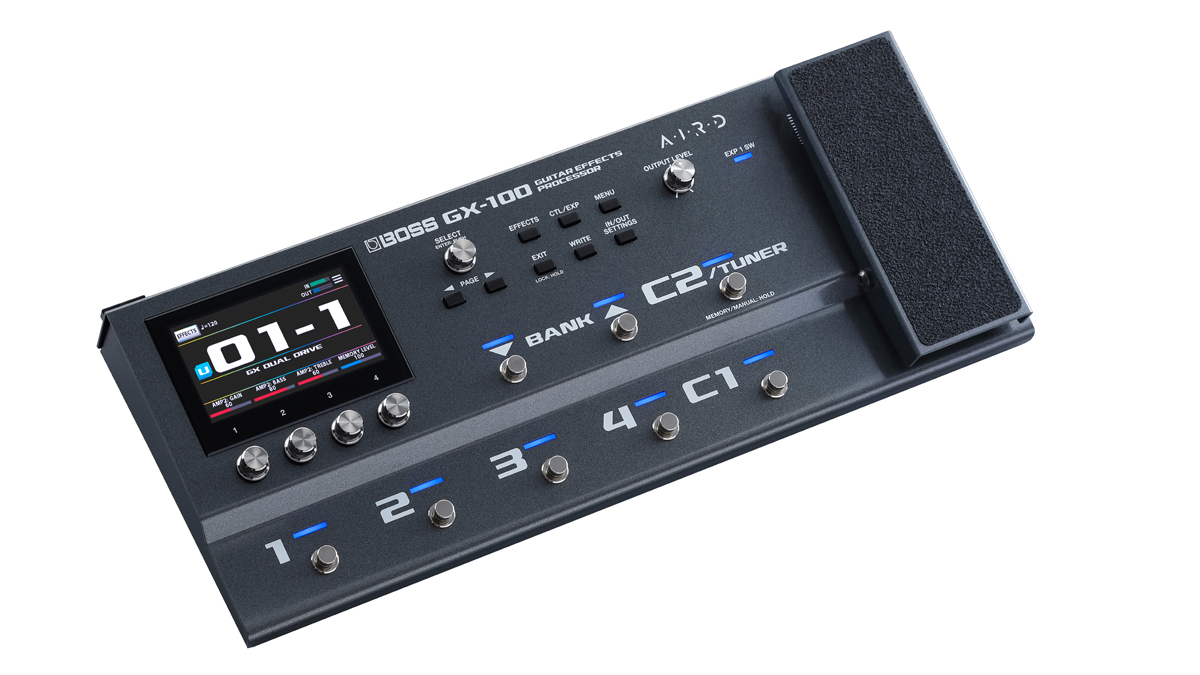
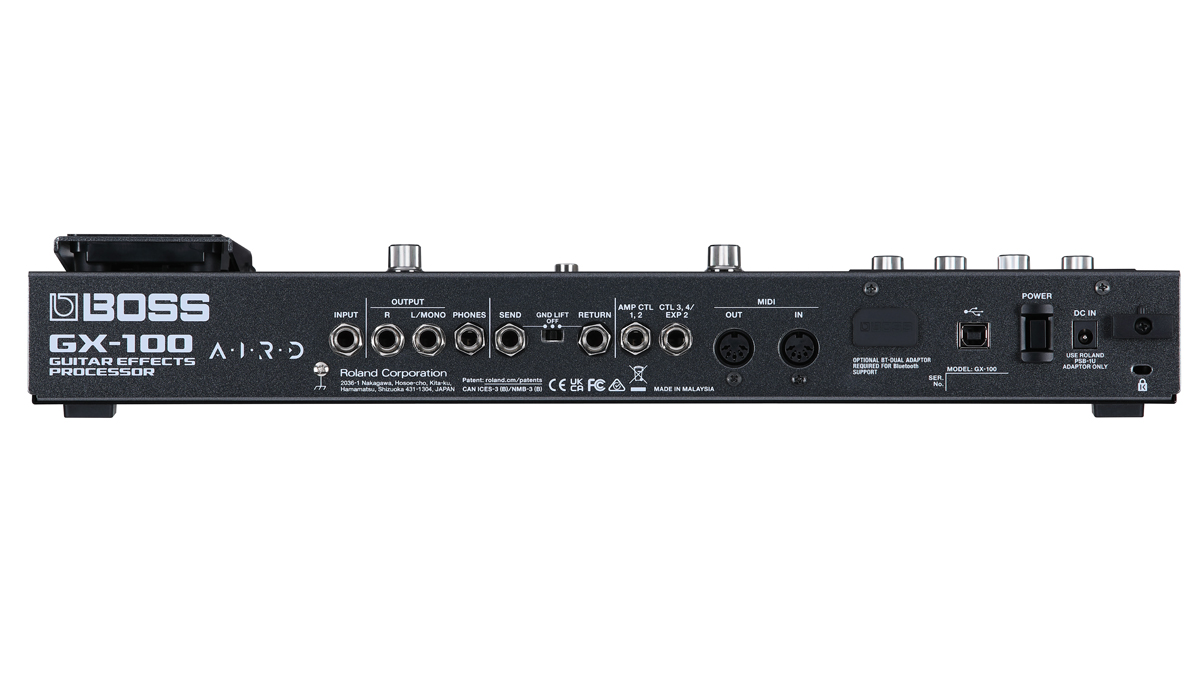
Even if you might still need to refer to the manual on occasion, once you’ve got the hang of the drag-and-drop signal routing, it’s clearly superior to the chain building on previous Boss multi-FX units.
The modelling – which packs a host of sounds from Boss’s flagship GT-1000 – is as strong as expected. Though there are fewer amp models than some of the competition, those that are here are dynamic and responsive – these sims are almost indistinguishable from the real thing. Their only tell is the lack of problem frequencies: they’re just a bit too perfect, but for many players, that will be a plus.
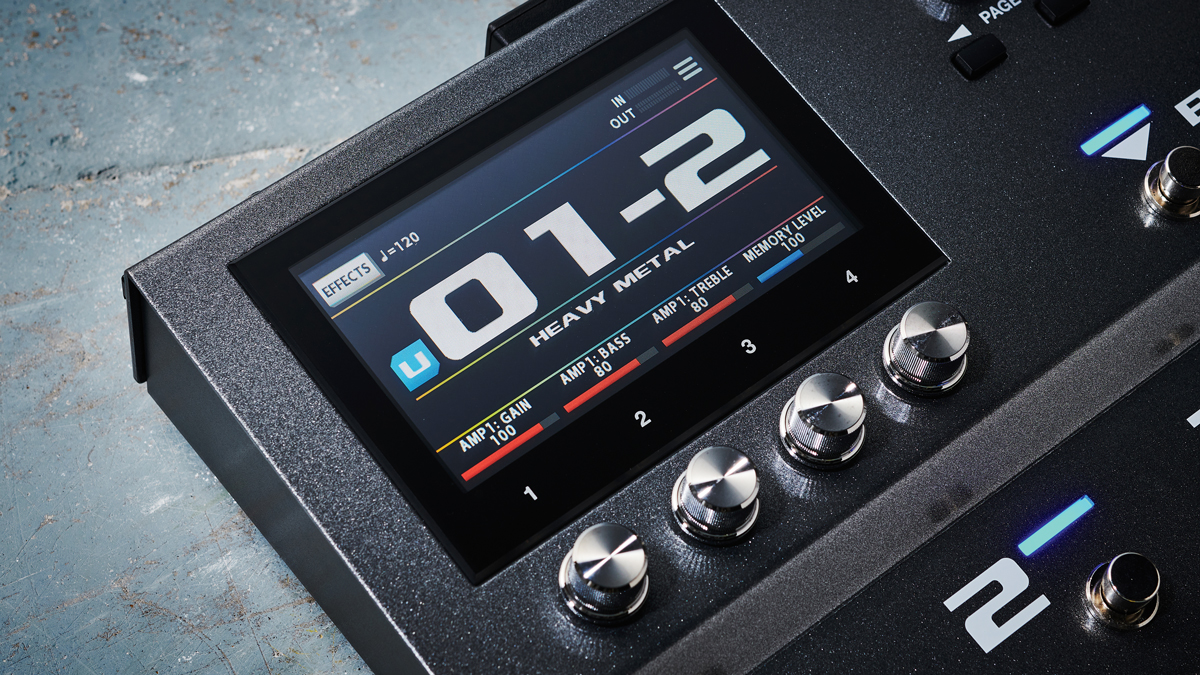
The GX-100’s real highlight is its effects – they sound great out of the box, and even as you tweak and combine them, you’ll struggle to make them sound bad. Side-by-side, the delay, reverb and modulation patches are as good, if not better than those on the Boss 500-series units. When combined or stacked in a virtual chain, boosts and drives react in a very realistic way, and setting up parallel chains is a breeze. They sound great in front of a real-life tube amp, too.
Using the GX-100’s models and going direct in isn’t any less inspiring or dynamic than playing through physical amps. That’s especially true with the ability to easily set up multi-amp and stereo rigs – lugging around a pair of combos is no fun, so this is an area where amp sims really have the edge. Whether it’s to blend a Marshall-esque crunch and a Vox-style chime, or simply to use a wet/dry signal chain, the results are excellent.
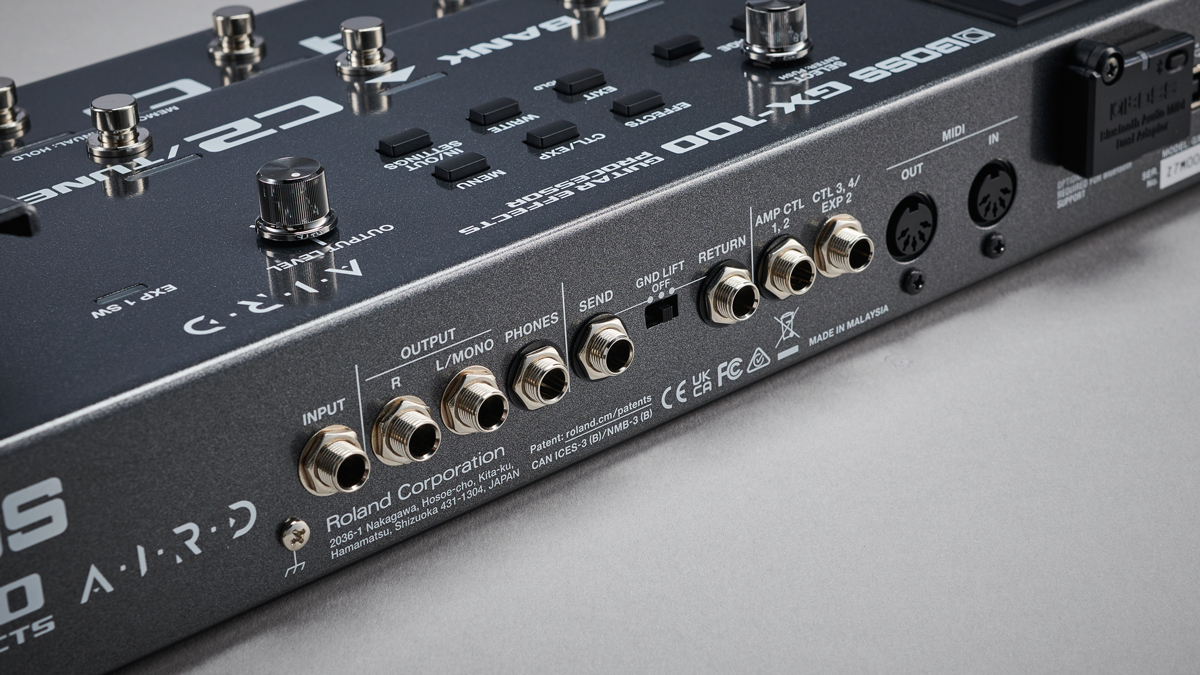
While it might take a bit of learning, it’s easy to reconfigure the GX-100 to match your preferences. The chain building is still a bit behind some of the competition, but the sounds are next-level. Even if you don’t need all the amp modelling features, its extra DSP horsepower shows when using the overdrive and distortion models.
All the latest guitar news, interviews, lessons, reviews, deals and more, direct to your inbox!
Elsewhere, the delay, reverb and modulation effects are as outstanding as you’d expect from the most prolific guitar effects maker in the world. All in all, it’s Boss’s best multi-effects and amp processor yet.
Specs
- Effects: 154
- Amp models: 23
- A/D/A Conversion: 24 bits
- Connections: INPUT jack, OUTPUT (L/MONO, R) jacks, SEND jack, RETURN jack: 1/4-inch phone type, PHONES jack: Stereo 1/4-inch phone type, CTL3, 4/EXP2 jack, AMP CTL1, 2 jack: 1/4-inch TRS phone type, MIDI (IN, OUT) connectors
- USB COMPUTER port: USB B type
- Bluetooth Adaptor port: BT-DUAL ADAPTOR
- Power: AC Adaptor (supplied)
- Contact: Boss
Alex Lynham is a gear obsessive who's been collecting and building modern and vintage equipment since he got his first Saturday job. Besides reviewing countless pedals for Total Guitar, he's written guides on how to build your first pedal, how to build a tube amp from a kit, and briefly went viral when he released a glitch delay pedal, the Atom Smasher.
